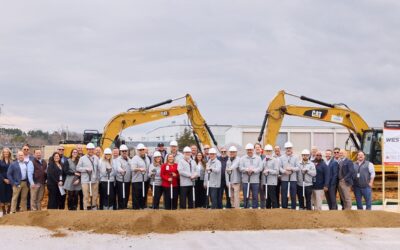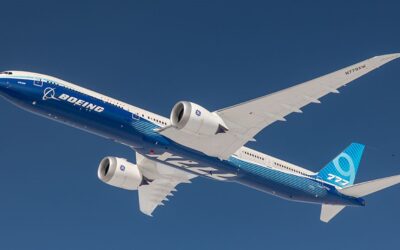
Sonesta’s Brian Macaluso discusses:
- Corporate demand trends
- Changes to Sonesta’s business mix
- The state of hotel staffing
Sonesta International Hotels in the past five years has grown exponentially, from about 80 properties in 2020 to more than 1,200 today following the acquisition of Red Lion Hotels and other realignments. The hotel company has leaned into specialized segments, developing targeted programs for small and midsize businesses, medical meetings and government travel, among others. Sonesta SVP of global sales Brian Macaluso spoke with BTN managing editor Chris Davis last month at the Global Business Travel Association convention in Denver about the company’s evolving business mix, market approach and demand outlook. Edited excerpts follow.
BTN: It’s been a bit of a turbulent year. What’s your read right now on where everything stands in terms of business travel?
Brian Macaluso: At Sonesta individual business travel is still a little bit slower than expected. It hasn’t returned to where everybody thought it would be. So as we look forward, we see the year projections following what STR is saying. Everybody projected it to be a little bit more of a stronger year. And right now it’s a little bit lower than where it was expected to be.
It’s not like it’s doom and gloom, and it’s not like it’s sunshine and roses. And some cities are stronger than others. Just like [U.S. Travel at its IPW trade show in June in Chicago] talked about for the leisure travel coming into the U.S., certain countries are stronger than they’ve ever been ,and it’s counterbalancing Canada being down. And so that’s how we’re looking at it too.
BTN: Has Sonesta’s changes over the years altered who the typical Sonesta business traveler is?
Macaluso: Sure. Sonesta had 50 hotels and three brands four and a half years ago, and now we have 1,100 hotels across 13 brands. During the pandemic, everything was driven by nurses and [essential workers], and corporate travel was non-existent. As we’ve continued to move forward, we’ve enhanced our ability to welcome those travelers back.
We see more workforce travel, we see more displaced housing travel, and we see more extended-stay travel. We added economy, extended-stay, upscale and upper-upscale hotels. Sports has been a huge segment for us, and we developed an internal certification program that each one of our hotels takes to become Sonesta Sports certified.
Government travel has been a huge segment that has propelled us. Obviously, at the beginning of this year it was down, but we’re seeing pockets that are still supportive. State government still continues to travel, and we saw a little bit of an impact from federal government, but we’re starting to see it come back. But we take all of our hotels through [a certification] we call Government Ready. There’s certain things that a hotel has to have in order to welcome government travelers, including CAGE Codes. So while we’ve added different hotel portfolio to welcome guests, we’ve also added training for the hotels to welcome new guests.
BTN: Does that show up at the point of booking? Can you see that certification on the site?
Macaluso: It depends on who they’re booking with. We’re still launching the government ready program, but we work with veterans quite a bit, work with the [U.S. Department of Defense and Drug Enforcement Administration], all those entities to make sure they know that we’re available. But the good thing is that [for government business], you won’t be able to book the hotel unless you have all of these qualifications. So we’re [preparing] the hotel to be prepared to welcome government business.
We also signed a partnership with Meeting Professionals International on its Healthcare Meeting Compliance Certificate certification. Sonesta signed a partnership where we took all of our full-service Sonesta hotels through HMCC certification training. One person at each hotel becomes certified, and they went through a four-hour training class to make the hotel venue-verified. So now all of our full-service Sonesta hotels are venue-verified. When a meeting planner goes to book a hotel, they know these hotels are ready for medical meetings.
BTN: Are you comfortable with the business mix Sonesta now between business, leisure and group? Are you trying to shift that mix in one direction or the other?
Macaluso: In general, everybody would like business to come directly from their website. … We’re leaning into loyalty to help drive more loyal members for us. From a business mix perspective, we’re continuing to grow and evolve, but the main focus for us is to get the customers to come directly to the Sonesta website, become Sonesta loyalty members and drive that recognition because we want a guest to come and stay once and then come and stay again.
BTN: Some buyers prefer travelers book through travel management companies or booking tools rather than direct. Does that create tension?
Macaluso: I wouldn’t say tension. Our “Sonesta First” philosophy focuses on doing business with our customers the way they want to do business with us. if they choose to work with a TMC and they want to book through the GDS, we’ll make that available for them. If they want to book directly with us, we’ll make that available for them. If they want to book directly on our website using their corporate code, we’ll do that. Our Sonesta Global Preferred program gives a lot of our corporate travelers chainwide discounts, whether through [an online booking tool] or our website.
BTN: How is transient request-for-proposals volume this year, and are you noticing anything different in that process?
Macaluso: We see more off off-cycle RFPs, but in general, the volume of RFPs versus last year continues to increase. It’s increased year over year. Our goal is to get more exposure with all of our existing hotels as they grow. We’ve seen business cases increase for our hotels and more acceptances because [buyers are] seeing a Sonesta in a location that maybe they didn’t consider before. … We have a centralized RFP team that supports us.
BTN: Are SMEs and infrastructure-related travelers using RFPs or are they booking more informally?
Macaluso: It depends. A lot of smaller organizations will work directly with our hotels in the form of a local negotiated rate. Sonesta has a program called Sonesta Business Pass, which will allow an individual hotel to create a program to not only give them a negotiated rate at their hotel, but then give them a chainwide discount to use at any hotel throughout Sonesta.
A lot of our TMC partners have specific curated SME programs. We’re seeing a lot of SMEs, instead of coming directly to the hotel to book directly, are partnering with the TMC. We’ll work with them either way, because a lot of our larger corporate accounts do the same thing.
BTN: For a lot of hotel companies, staffing shortages were a major concern post-pandemic. Is it still?
Macaluso: Staffing was a huge challenge from the pandemic, we’ve leaned into quality assurance with each of our hotels, quality assurance audits to make sure they’re upholding the standards of what a Royal Sonesta is, what a Sonesta is, what an ES is. Three years ago, staffing challenges would’ve been probably the biggest topic. … There’s always going to be a staffing question, but from us, from a quality-service perspective, it’s not something that’s hindering us.
Recent Posts
- Electra joins Virginia program to create blueprint for AAM flight rules
- ALERT Act introduced to House to improve U.S. airspace safety
- West Star Aviation announces major Chattanooga expansion to meet growing maintenance demand
- Boeing recieves FAA and EASA qualification for 777-9 flight training simulators
- Freestream Aircraft Limited Welcomes Mauro D'Angelo to Its Aircraft Sales Team







Recent Comments